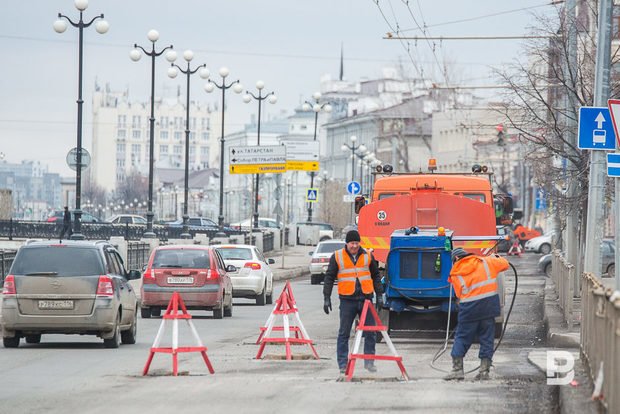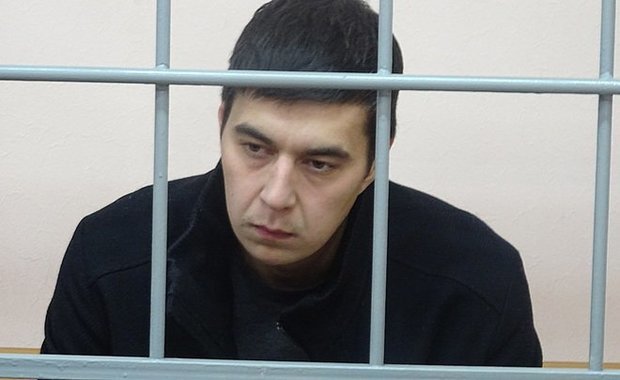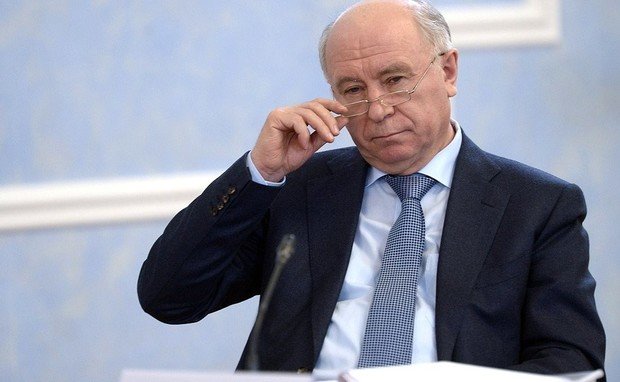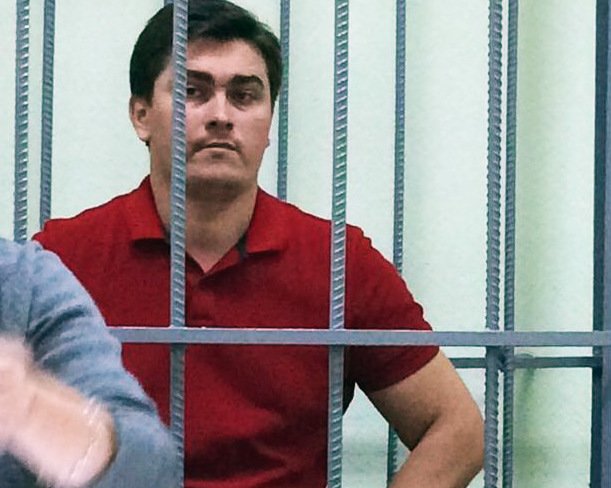Road kings of 2018 World Cup: the Shvetsovs in Tatarstan, Merkushkin's Mordovian environment and Udmurtia's deputies
The roads for the football championship in the regions are being built by business structures close to local elites
Social activists have analyzed more than 1,5 million tenders for construction and repair of roads for 2018 World Cup. According to them, almost half the auctions in 12 regions were carried out with signs of violations. It is claimed that in most cases the purchasing conditions had been adjusted under the 'right' contractors connected with local elites. For example, multimillion-ruble state orders in Mordovia, Udmurtia and the south of Russia went to deputies' companies. Tatarstan was also no exception. Read about this and other facts in the overview of Realnoe Vremya.
Failed to save
Almost half the money allocated for the construction and repair of roads for the 2018 World Cup was spent with violations in procurements. It was reported by Transparency International Russia on Tuesday. According to its calculations, the violations 'cost the budget 2,5 billion rubles' — the amount could have been saved if the tenders were conducted on competitive terms.
The center of Transparency International in Yekaterinburg has been engaged in the analysis of the procurements since February 2017. It has been monitoring the auctions in 11 regions, which are to host the world championship. Besides, the sample included Udmurtia — it was requested by the local public organization Udmurtia Motorists as former governor of the republic Alexander Solovyov 'is being under investigation of kickbacks in road construction' (he was accused of taking a bribe in the amount of 140 million rubles).
In total, Transparency International has checked more than 1,5 million procurements at the total initial cost of over 201 billion rubles. The signs of violations have been revealed in 435 procurements with the initial cost of 97,18 billion rubles. The actual price of all contracts, according to TI, exceeded 96 billion rubles. In other words, the saving from the auctions amounted to 1,11 billion rubles, or 1,15%. For comparison: in competitive tendering, the savings amounted to 3,76% of the initial price.

Major part of the violations, according to the social activists, is connected with the adjustment of purchasing conditions under the 'right' contractors. ''Almost every region has its own cartel in the field of road construction, as a rule, affiliated with regional authorities. The companies that could perform the necessary work are just not allowed to auctions. Because of this, prices are falling not as much as they could, and as a result, budget funds are spent inefficiently.''
In procurements, which TI considers to be 'suspicious', there have been identified four types of violations: establishment of additional requirements to participants from the customer (66% of the cases), unjustified consolidation of lots (16%), wrong form of the auction, in particular, procurement from a single supplier (10%) and other violations, including overpricing (8%).
Tatarstan gave contracts to the son of the former deputy prime minister
In Tatarstan, Transparency International have checked 133 auctions. In most of them (126) there participated a maximum of two companies and the price in the auction was beaten down by 0,5% at best. According to the results of another six auctions, the contracts have been concluded with the starting price. There also were excessive requirements to the participants: according to Transparency International, they were imposed when placing all 86 orders for construction, reconstruction, capital repair or maintenance of roads.
The total starting price of all road orders for the 2018 World Cup in Tatarstan exceeded 12,7 billion rubles. According to Transparency International, the procurements at 9,72 billion rubles were conducted with violations.
More than two dozen companies became winners of the auctions in the republic. Among them there are state and municipal organizations or companies in one way or another controlled by the republic. For example, the Tatdorproekt Institute (subsidiary of GUP Tatinvestgrazhdanproekt) won three tenders for design and survey works at the total cost of 15,5 million rubles.

Many contracts went to firms connected with the family of former deputy prime minister of Tatarstan Vladimir Shvetsov or with him himself. Among them there is Transproektservis PLC: 25% of the company is owned by the son of ex-official, Vladimir Shvetsov Jr., who in November became a figurant of a criminal case on excess of powers of office and swindle in especially large size. Transproektservis won a contract at 2,7 million rubles.
The company Mosty RT (Shvetsov Jr. owns 42%) won three tenders at the total cost of over 240 million rubles. Alekseevskdorstroy JSC was declared the winner of 18 auctions, for the works the company will receive more than 1,5 billion rubles. One of its owners is Shvetsov Jr. MDSU-1 PLC, in which Shvetsov Jr. owns 30%, won the state order at 188,7 million rubles. The trust Kamdorstroy won the auction on roads repair at 136,7 million rubles. The latter, by the way, has already been on the radar screen of the antimonopoly service before. In October, as it became known to Realnoe Vremya, by order of the Prosecutor General of the Russian Federation, the Federal Antimonopoly service held in relation to one of the largest road construction contractors of Tatarstan an unscheduled inspection to identify possible cartel agreement in public procurement. And this happened two months before the end of the eighteen-months reconstruction of the airport runways of Koltsovo and Volgograd — this December Kamdorstroy is to commission the objects to the customer and get the final pay.
Mordovia and Udmurtia: the state order for MPs
In Mordovia, TI notes, ''it is clearly traced another method of implementation of the cartel'': competitors do not participate in the purchase or withdraw the application ''to give a certain participant to win''.
Among companies-winners in Mordovia there is SK Transmagistral, close to the MP of the regional parliament, Mikhail Ioffe. The company won the contract at 627,2 million rubles. Several contracts worth more than 3 billion rubles were given to the company Mordovdorstroy. Its co-owner is Raisa Tuturkina. Nezavisimaya Gazeta newspaper considers it to be close to ex-governor of Mordovia Alexander Merkushin. Another winner of the auctions was MAPO-Trans, headed by local deputy from United Russia Party Alexander Atlasov.
The total amount of the orders for roads construction for the World Cup in Mordovia amounted to 4,5 billion rubles. According to TI, the auctions at 3,8 billion rubles were concluded with violations.

In the Udmurt Republic, it was actively used 'the ram attack technology' in procurements, Transparency International says. Its essence is that 'collusion participants dump, simulating an active trade'. As a result, the price drops so that honest participants stop speculating for a fall.
TI saw the signs of collusion in the auction for the development of documentation and engineering surveys for the construction of Kalashnikov Prospekt in Izhevsk. The winner of this auction was the local Avtodorstroy PLC, the beneficiary of which is deputy of the City Duma of Izhevsk Zakhar Milostivenko. The company won a contract at 43 million rubles. In addition to it, in cahoots, in the opinion of the social activists, there participated Profgeoproekt PLC, Tektonika, Niva, Spetssvyazmontazh and Prioritet Finans. In the summer, by the statement of TI it was initiated a criminal case against Milostivenko, he was placed under house arrest.
We will note that three mentioned companies (Avtodormostproekt, Niva and Tektonika) were suspected in another bid rigging. In August, Kommersant newspaper wrote that the Federal Antimonopoly service in Chelyabinsk sought the initiation of criminal proceeding after the auction for design and survey work on the traffic interchange on the road Chelyabinsk—Kharlushi.
In Udmurtia, TI saw the signs of violations in the procurements at 7,19 billion rubles, and the total orders were placed at 11,35 billion rubles.

The south of Russia: many contractors, one founder
In Rostov Oblast, in the period of 2016-2017, there have been held 263 auctions connected with road construction for the World Cup. In many cases, the winners were different firms established by one person. So, the total of 92 contracts were signed with four companies: Tatsinskoye DSU PLC, Orlovskoye DSU PLC, Taganrogskoye DSU and Rostovskoye DSU. The sole owner of the first three companies is Olga Mitrokhina, previously owning 100% of Rostovskoye DSU. Also, Mitrokhina owns the local company Volgadorstroy.
Overall, out of 17,7 billion rubles, which were allocated by the government for the World Cup in Rostov Oblast, there have been found signs of violations in tenders at almost 3,5 billion rubles.
In Volgograd Oblast, the road contacts at 298 million rubles went to the company of ex-chief of regional management of highways Sergey Reznikov — Mostdorservis. It won three orders, all auctions were held on non-competitive basis. In the middle of the 2000s, Reznikov was a suspect in a criminal case on embezzlement of budget funds allocated for the construction of a bridge across the Volga river. He was sentenced to 6 years imprisonment suspended.

Three tenders at 105 million rubles were given to Stroygarant PLC. Its director general and main owner is the head of the Duma of Kamyshink district of Volgograd Oblast Vladimir Khomutetsky.
Following the results of the review of all procurements, public figures sent 48 statements to the Prosecutor's office and the Federal Antimonopoly service in the regions. The reaction was received in relation to 7 applications, officially violations were recognized in three cases, for one of which (the cartel in the Udmurt Republic) it was initiated a criminal case. ''Besides, some of our applications have been followed by provisional answers, but most of them the authorities have simply ignored,'' Transparency International Russia reports.